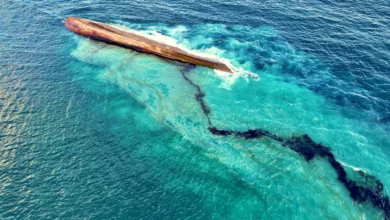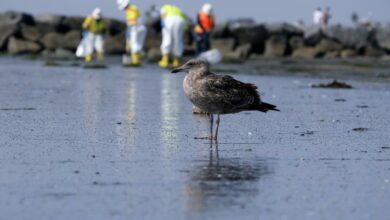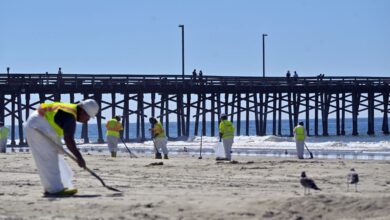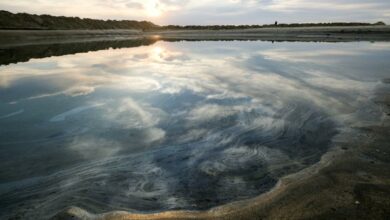Washington–The BP oil spill was a massive "failure" in government oversight and administrations should be forced to consult with experts in the field before making expansive drilling policy, top officials of the White House's oil spill commission said on Wednesday.
Commission Co-chairman Bob Graham, a former US Senator from Florida, said regulators and offshore drillers were aware of the possibility of a major well blowout, such as the one that caused the BP spill, but ignored the risks.
"We should be clear. This disaster represents an enormous and shared failure of public policy," Graham said at the commission's second public meeting probing the massive blowout in the Gulf of Mexico that has since been contained.
Criticizing the Obama Administration for not consulting experts on the decision to expand offshore drilling earlier this year, Graham said the panel may press for laws to force the Interior Department to work with National Oceanic and Atmospheric Administration and the White House Council on Environmental Quality when formulating policy.
"There isn't a culture, and this crosses administrations, that naturally reaches out to the scientists for their participation, therefore it would be appropriate to ask that Congress change the process," Graham said at the commission's second public hearing.
Jane Lubchenco, head of NOAA, and Nancy Sutley, head of the Council on Environmental Quality, told the hearing they did not advise the president on the decision to open parts of the east coast and Alaska to offshore drilling.
The Obama Administration unveiled the expanded exploration plan in March, but it has been put on hold since the BP spill ravaged the Gulf coast.
Liz Birnbaum, who was head of the Interior's Minerals Management Service when the plan was released, told commissioners she backed the plan. "In the end I supported the administration's decision," Birnbaum said.
She pointed out Interior's plan was less expansive than one proposed by the Bush administration.
A little over a month into the oil spill, Birnbaum resigned as head of the agency responsible for overseeing offshore drilling, which was criticized for its close relationship with oil companies it was supposed to oversee.
The panel will examine whether the lack of scientific input for the new drilling plan may be indicative of a larger problem with government's leasing policy over the years, co-chair Bill Reilly said.
"Scientists outside MMS, based on what I've been told, do not really think they have been adequately consulted or effectively involved in these decisions," said Reilly, the former head of the Environmental Protection Agency.
At the meeting, the commission also separately discussed industry-wide safety standards to supplement government regulations in the nuclear power industry.
The meeting discussed the creation of a self-regulating structure modeled on the Institute of Nuclear Power Operations.
The structure could make oil companies operating offshore more accountable if there are shared responsibilities. Even now, as in the nuclear industry, one accident carries steep costs for the entire sector.
The American Petroleum Institute, the oil industry's powerful lobby, is considering the idea too.
"However, a program for the US offshore industry would have to take into account its unique characteristics," said Erik Milito of API.
Milito said the offshore drilling industry involves a more diverse set of companies and practices than the nuclear industry.




